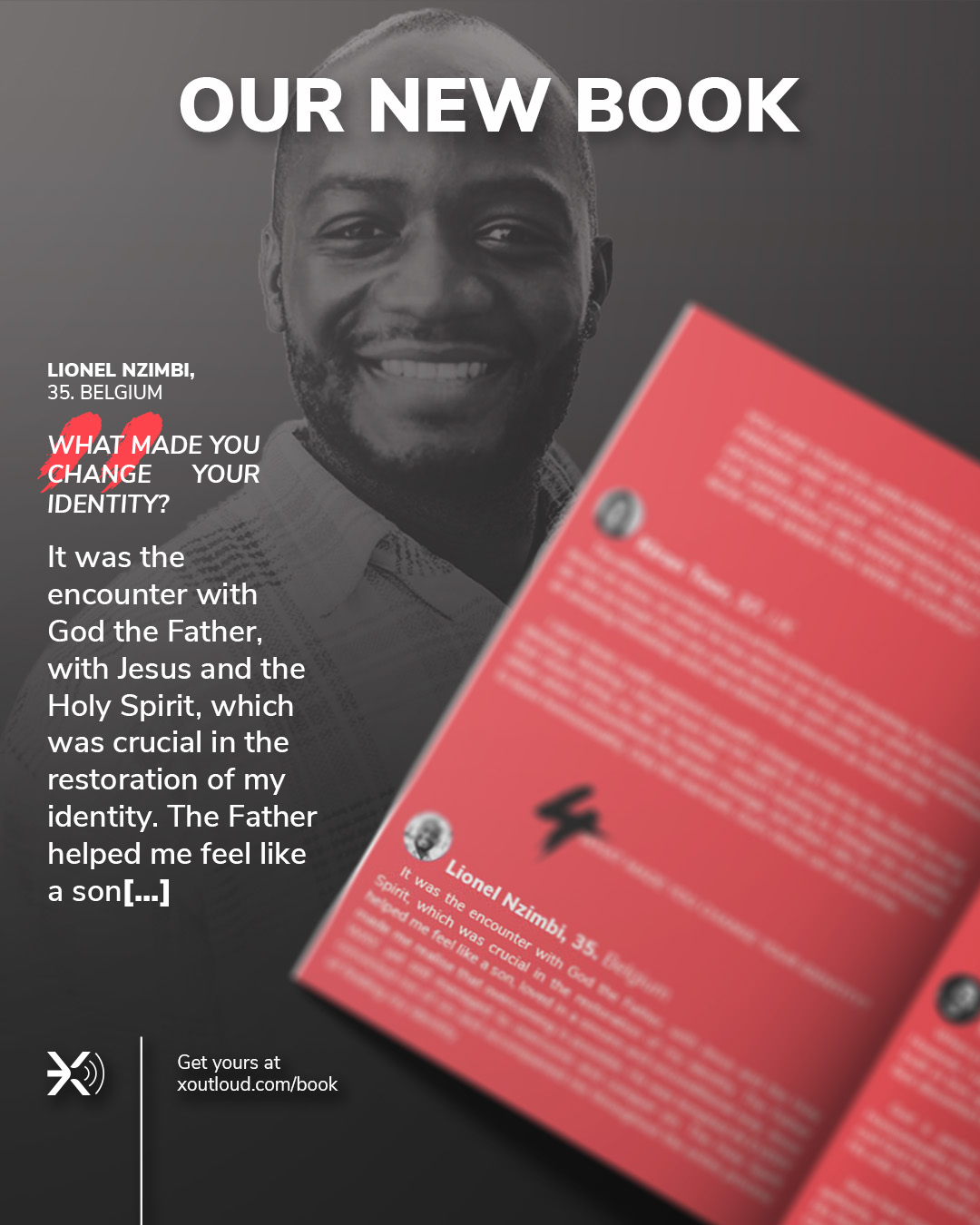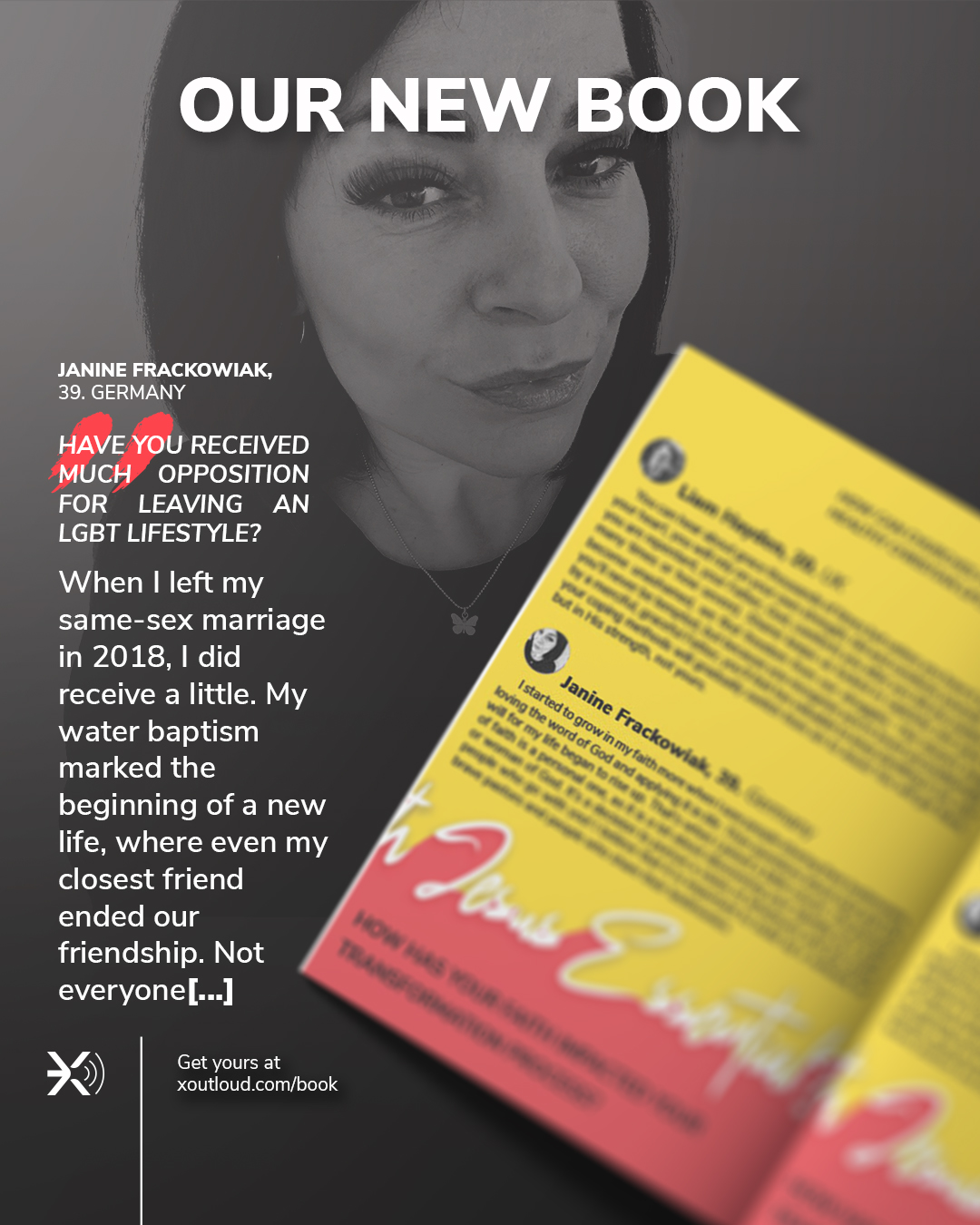How I Feel in My Church After I Left LGBT
Last week we launched our second book ever! God is so good!
This time we adopted a different format and opted for something smaller in size, that would be easier to distribute to the crowds and cheaper cost-wise.
We interviewed nine men and women from our community, formerly LGBT identified, who had struggled with gender confusion or been married with the same-sex. We tried to get a bit deeper into why they made some of the decisions they made, what the journey felt like, what the revelation is that they received – all of that with a specific focus on the church community.

We are grateful for our churches now, and for all the other churches which continue to stand for the Biblical truth, while compassionately ministering to the strugglers and those coming out of those lifestyles and identities. But it hasn’t been like that always and it’s still not the case for every church today.
We found that there is stigma on one side and lack of understanding on the other side. In some Christian backgrounds former LGBT people are seen as dangerous, unsafe, or weird. They might be criticised or looked down on just because of their past. In other cases, there is a sense of embarrassment or discomfort, Christians who stay away from these kinds of topics because they’re either scared, insecure themselves or ill-equipped to know how to deal with such cases. We have come across situations when we were expected to change overnight and for our issues to disappear as we became Christians. But that’s not how it works.
Most of the times it’s a process is longer for some and more complex than for others. And in every case, there is much support and accountability needed. In an ideal world church should be the first go-to for anyone who struggles with any kind of sin. The church, yes, has done a great job in many areas of life, and we hope it will in this too. That’s why we put together some helpful information; so that we could learn from the mistakes some churches have made, and follow the example of those faithful ones.
Thus, the new booklet has 22 pages and is divided in five sections:

1. Freedom to change my mind – exploring a different path than the mainstream ‘born gay’ idea. Our participants were asked if they were born gay and what made them believe what they believe. Find out their response to what many tell them and call it ‘living in denial of your true self’.
2. Why is my walk with Jesus essential? – All these stories exist because of the work of Christ in these people. None of us would be here today if without Jesus and the power of His transforming gospel. Jesus came to set people free from the bondage of their sin and to heal their brokenness. He does that today in many different ways
3. Are there safe churches for minorities? – We believe in community. Jesus as the head of the church means that we cannot be scattered. We have to be united and have the revelation of the fact that we’re on the same team. Yet, we can’t deny the reality of spiritual maturity; we all need to grow in that. A church becomes safe for a minority like us when it is able to provide the right kind of help, to support along the way, to show compassion, and offer resolution to the problems.
4. Pastoral care principles for Christian leaders – We also came up with advice we find in the word of God and things we learnt in our journey of both our personal restoration and the pastoral care in our ministering to others.
5. Prayer and more resources – In the last section we included a salvation prayer – considering that the booklet might be distributed to unbelievers – and several useful links for more resources about sexuality, scientific information and testimony.
We invite you to pray with us that this booklet be used powerfully by God in His reaching out to the broken and lost. Please do consider speaking to your pastor about distributing this book in your church and reach out to us using this form for discounts on bulk orders.
Get our new booklet here.

